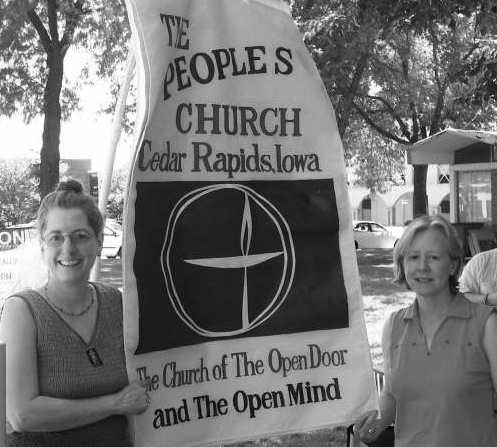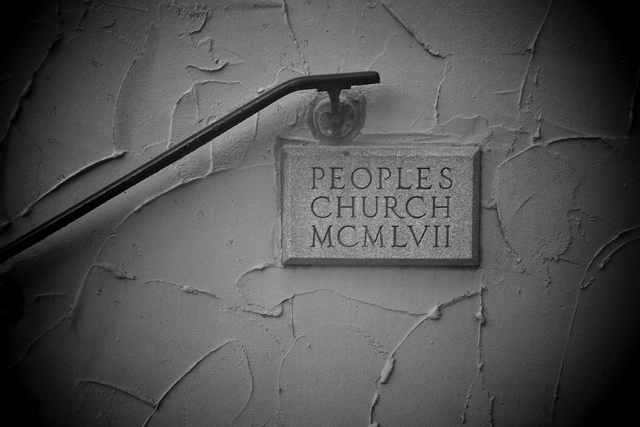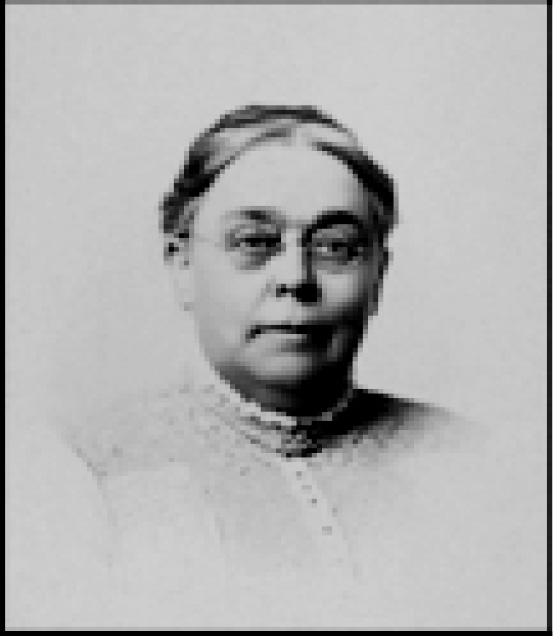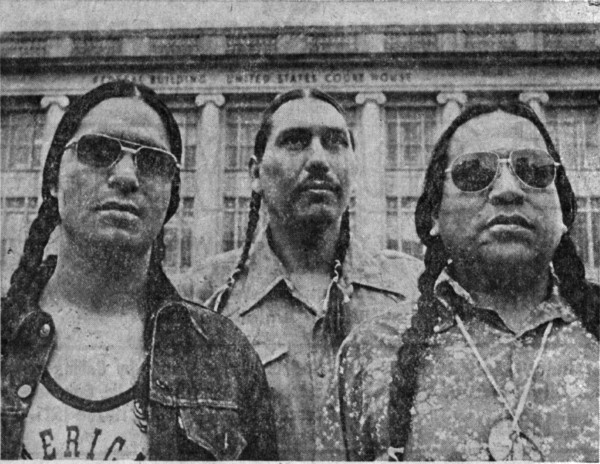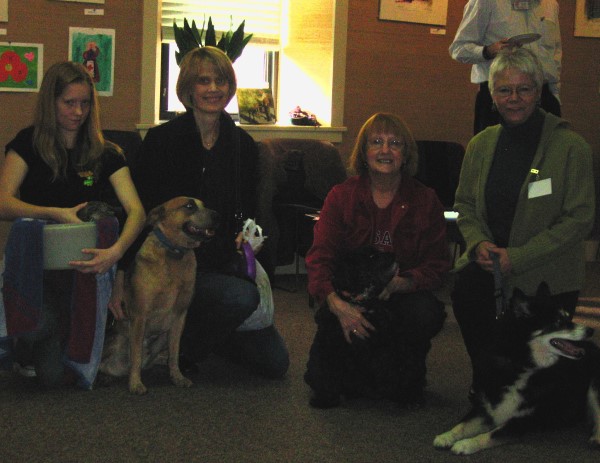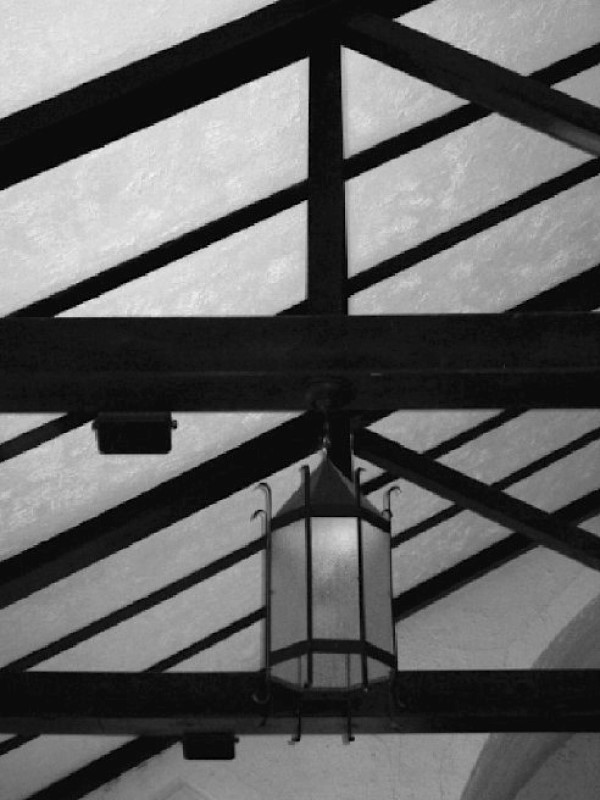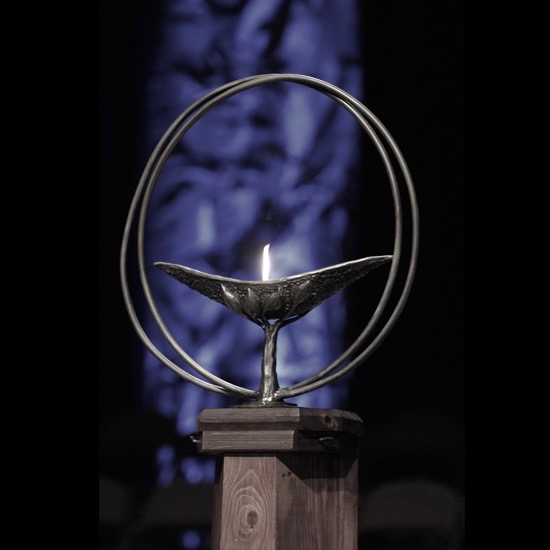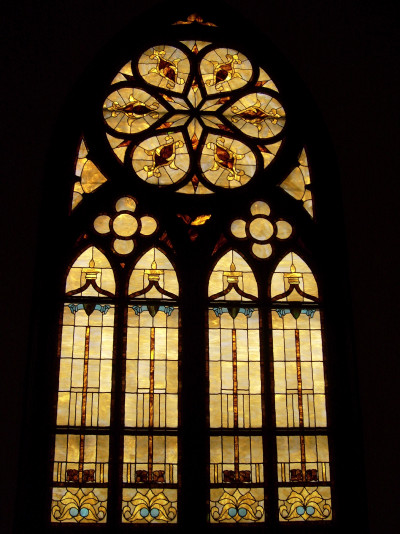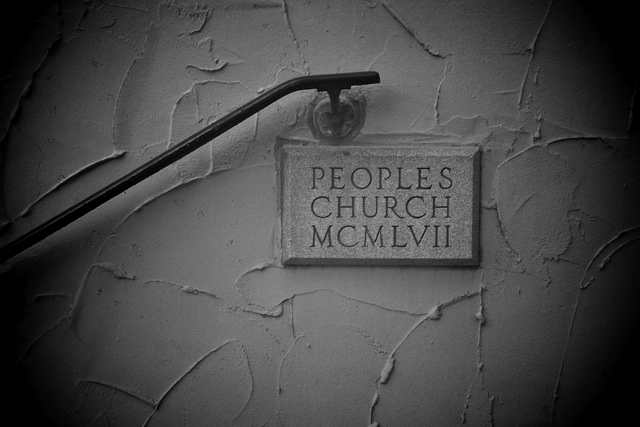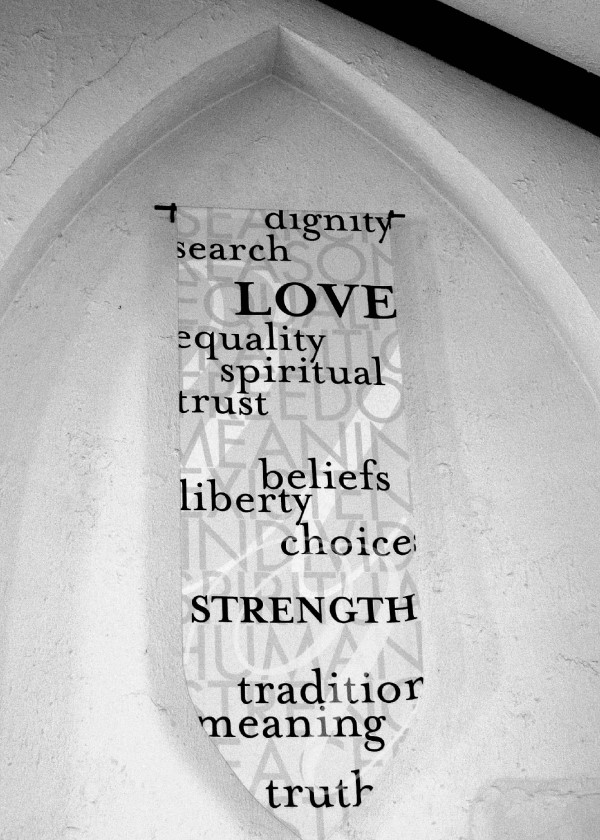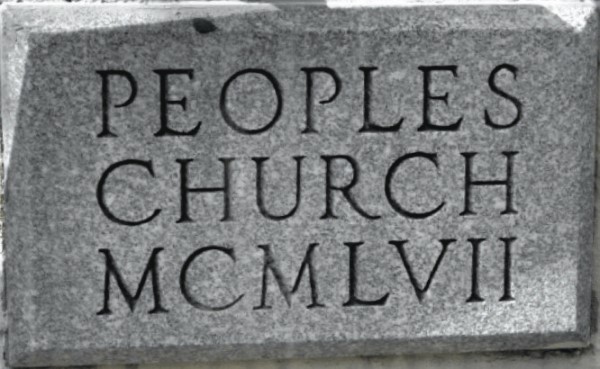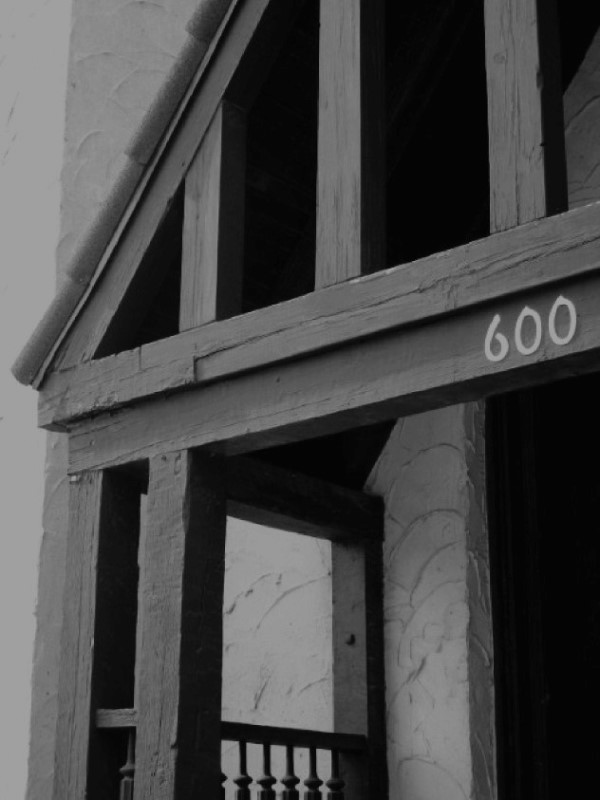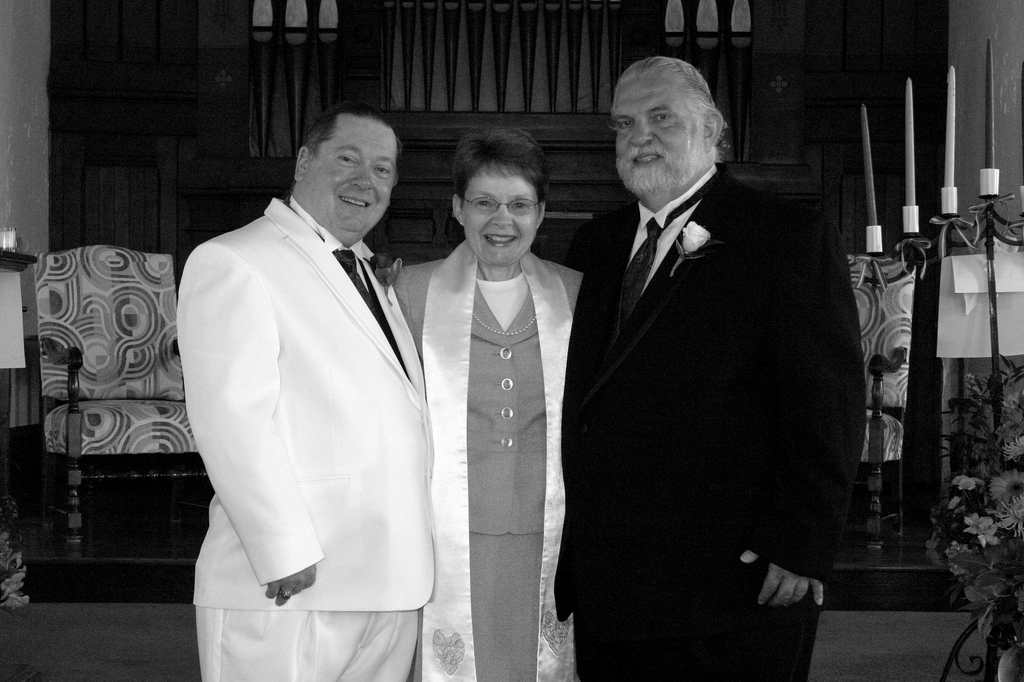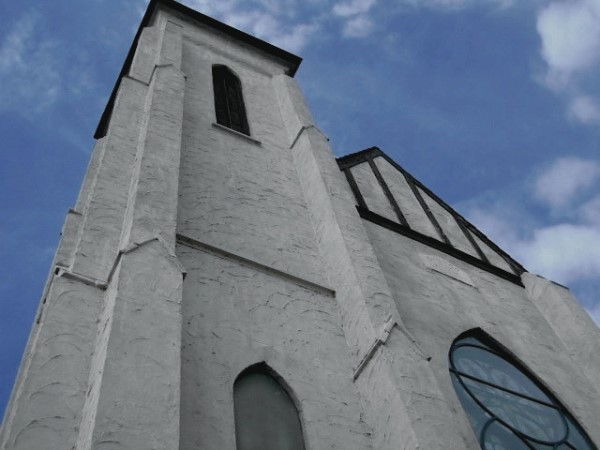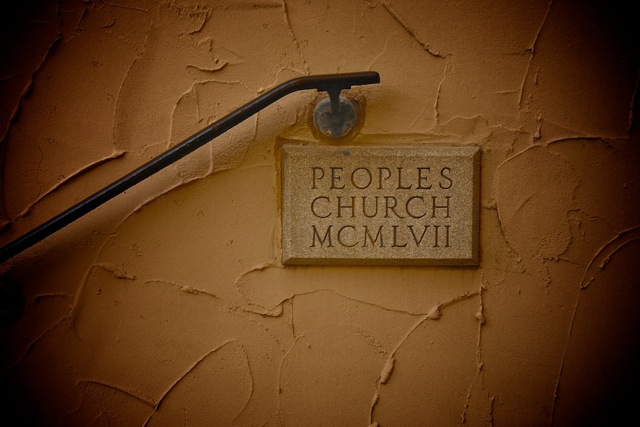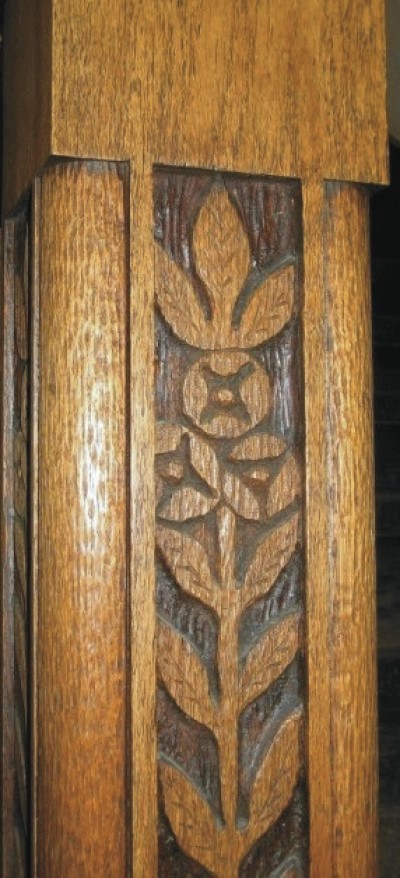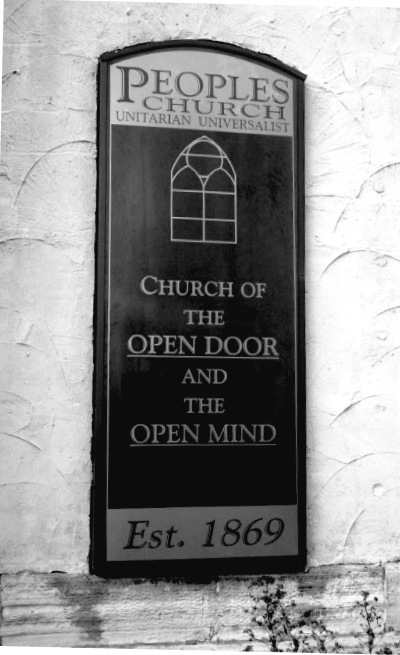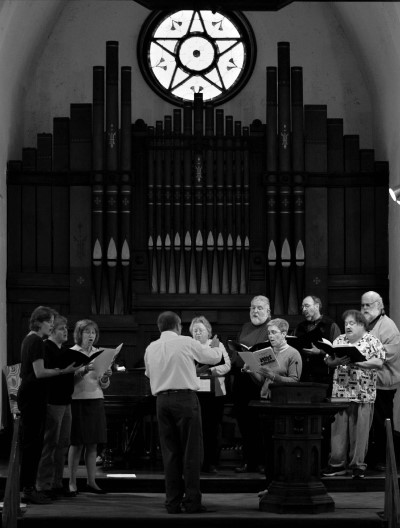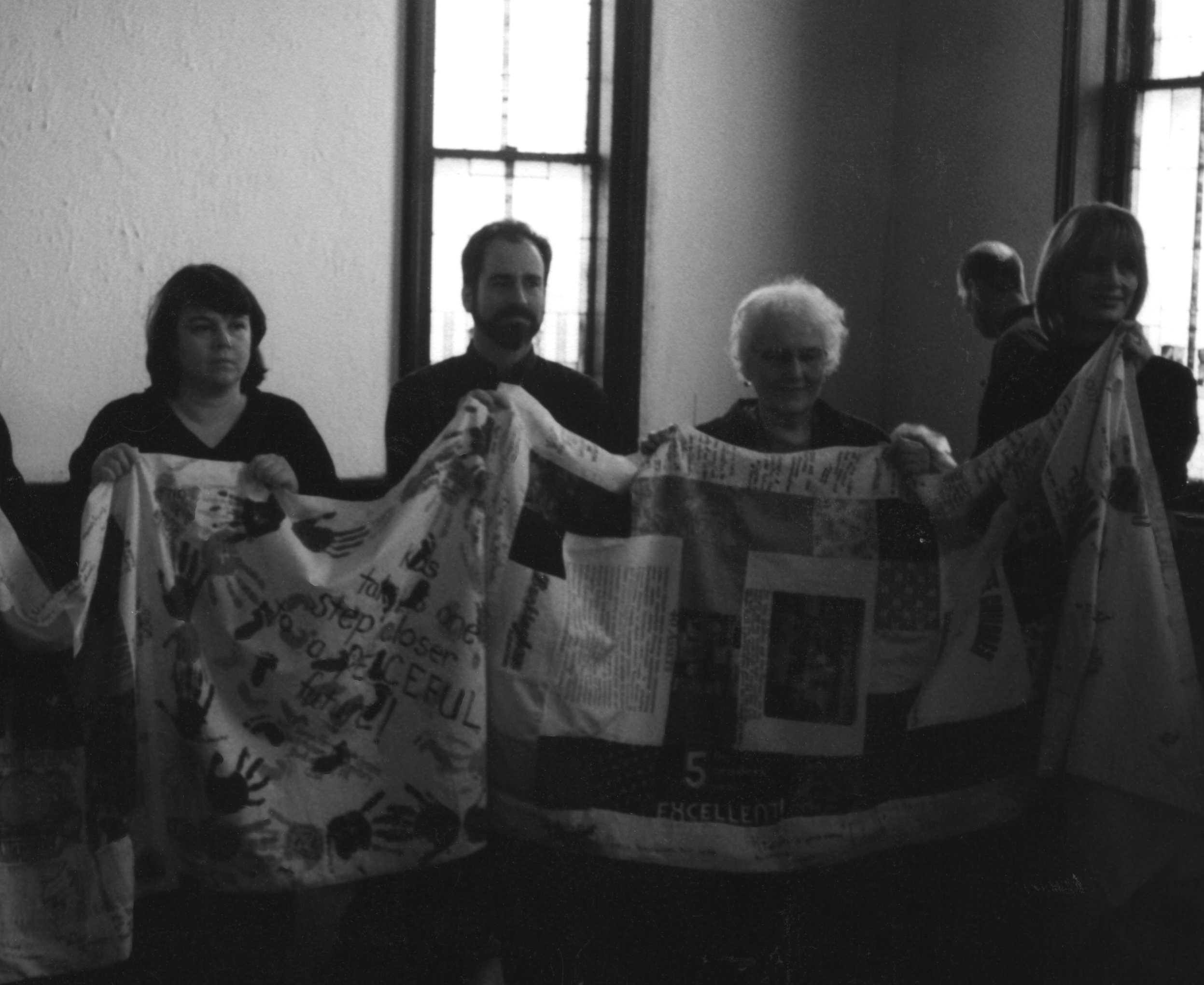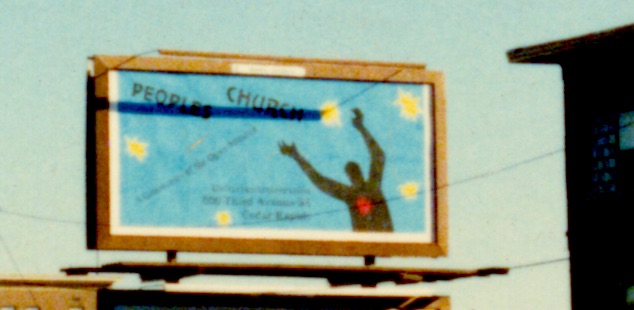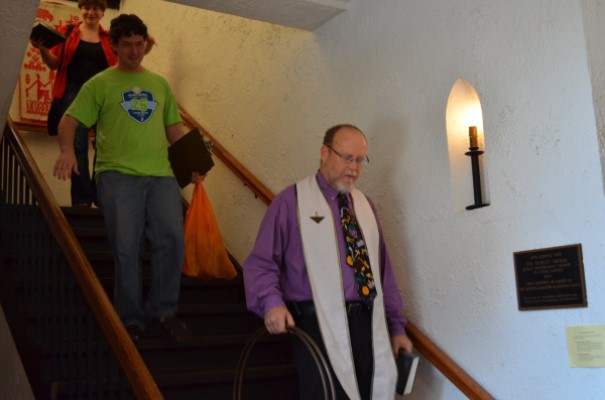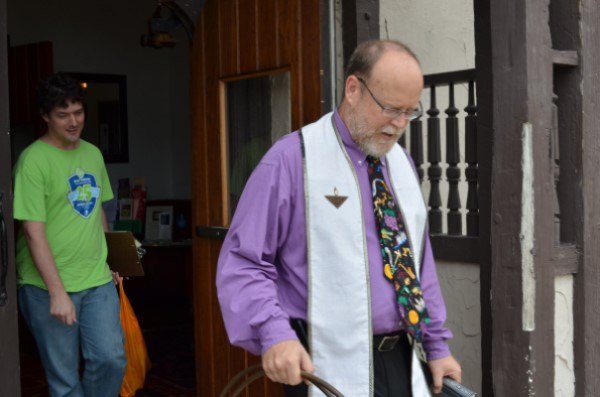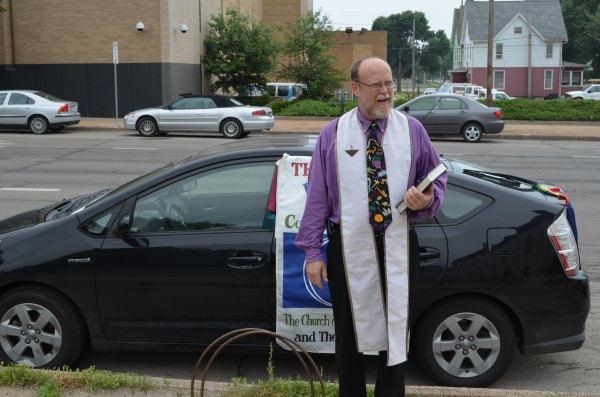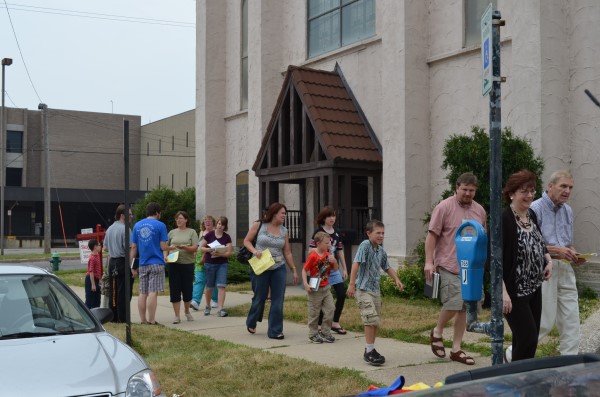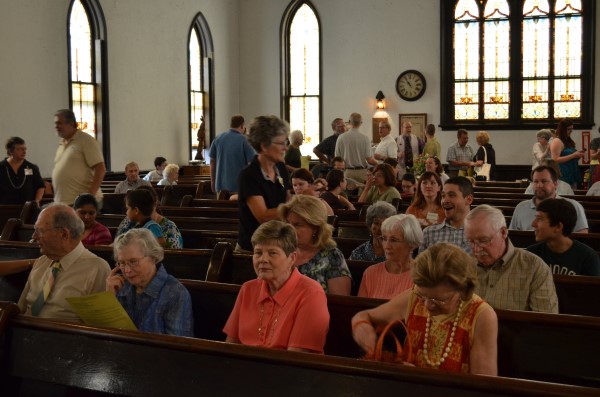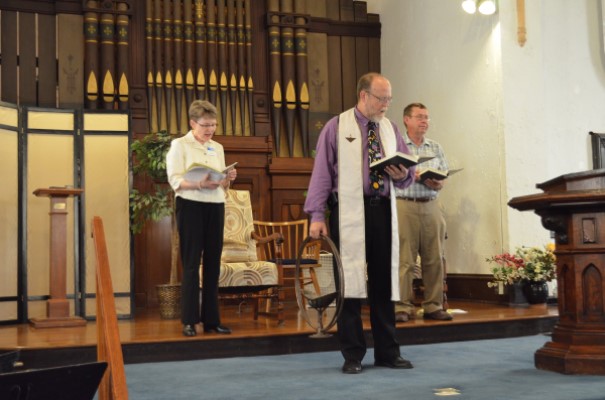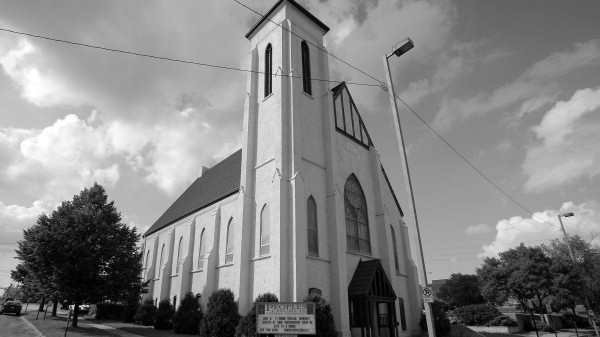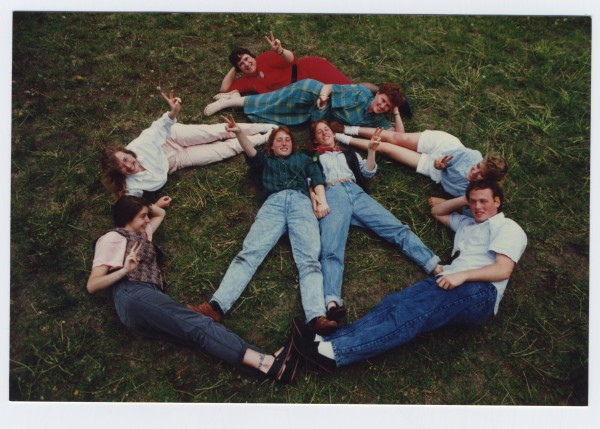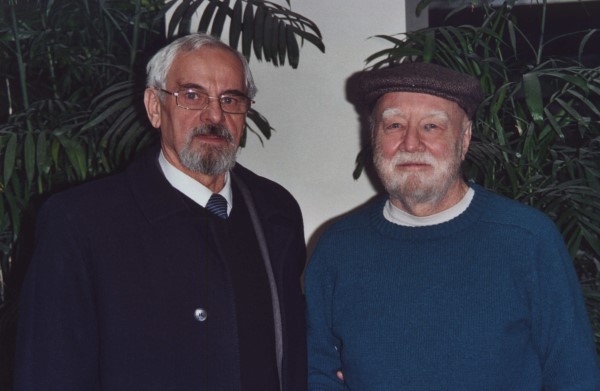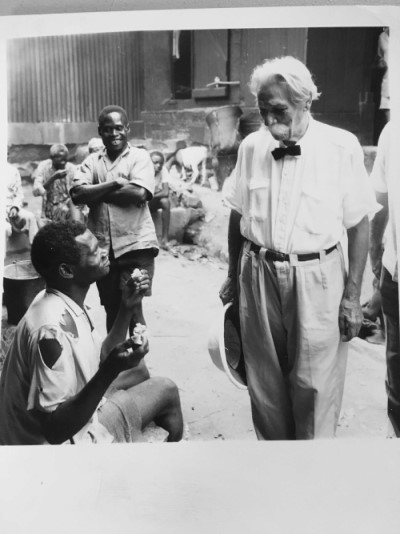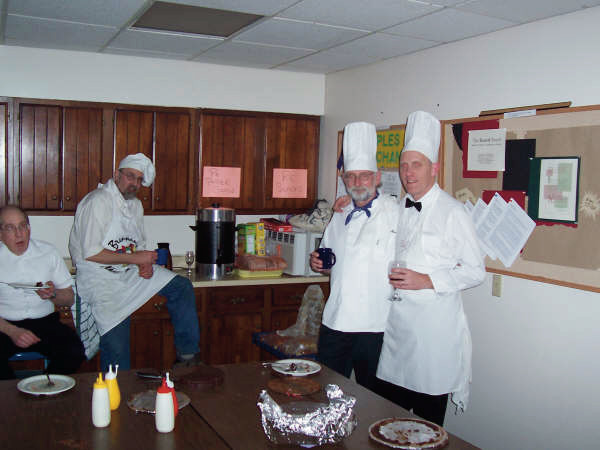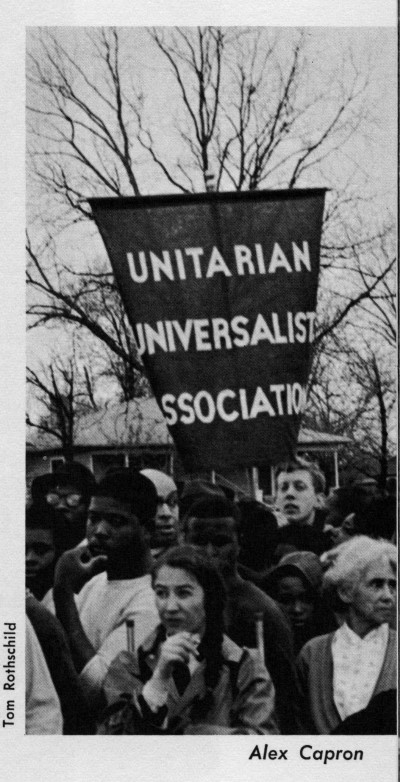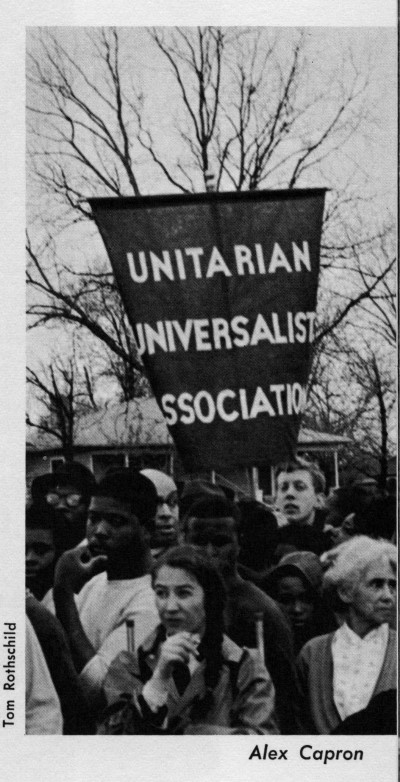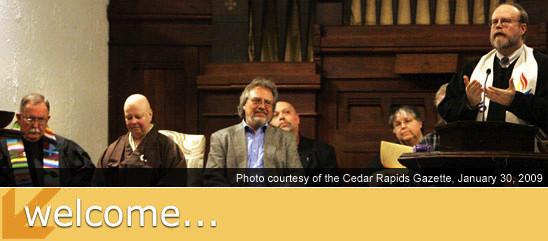Our History
Our History
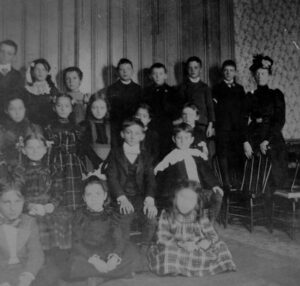
In 1869 a small group of young men and women met in Brown’s Hotel to organize the First Universalist Society of Cedar Rapids, Iowa. That modest beginning initiated an important presence in the city and region that has endured for well over a century. With historic ties to both the Unitarian and Universalist traditions of our denomination, Peoples Church has been an ongoing voice for liberal religion in Cedar Rapids, contributing to the cultural life of the community and supporting the efforts of its members in promoting social action.
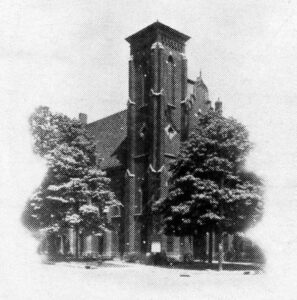 By 1878, the organizers had acquired property at 6th Street and 3rd Avenue SE and constructed a brick church. However, the early progress of acquiring property, constructing a church building, and increasing membership was offset by continual difficulty in retaining ministers. Ill health, insufficient salaries, and better chances elsewhere carried them off with disturbing frequency.
By 1878, the organizers had acquired property at 6th Street and 3rd Avenue SE and constructed a brick church. However, the early progress of acquiring property, constructing a church building, and increasing membership was offset by continual difficulty in retaining ministers. Ill health, insufficient salaries, and better chances elsewhere carried them off with disturbing frequency.
But in 1908, the church gained as its minister a luminary, Dr. Joseph Fort Newton. His powerful lecturing style and popular writings gained him so much influence that he was able to adapt the Universalist group to his personal idea of a theologically free fellowship, renamed “The Liberal Christian Church.” He built the prestige, membership, and confidence of the church and during his nine-year tenure, Newton did much to set the tone for what was to come.
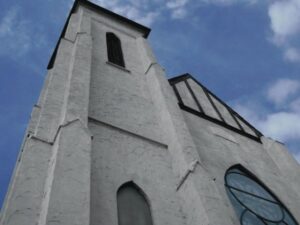 The shock of Newton’s departure for a parish in London, England, was compounded by the death of his successor only weeks after being installed. The Liberal Christian Church withdrew from the Universalist Convention and, floundering, discussed merging with the local Congregationalist Church. Failing this, Peoples Christian Church, as it had begun calling itself, engaged Dr. W. Waldemar W. Argow as its minister in 1921. This outstanding minister again inspired an upward trend in fortunes. Membership increased, new church organizations formed, a lecture series and publications were resumed, and remodeling of the building was undertaken, with local artist and teacher Grant Wood as one of the designers. In 1928 the congregation secured a loan from the American Unitarian Association and began formal affiliation.
The shock of Newton’s departure for a parish in London, England, was compounded by the death of his successor only weeks after being installed. The Liberal Christian Church withdrew from the Universalist Convention and, floundering, discussed merging with the local Congregationalist Church. Failing this, Peoples Christian Church, as it had begun calling itself, engaged Dr. W. Waldemar W. Argow as its minister in 1921. This outstanding minister again inspired an upward trend in fortunes. Membership increased, new church organizations formed, a lecture series and publications were resumed, and remodeling of the building was undertaken, with local artist and teacher Grant Wood as one of the designers. In 1928 the congregation secured a loan from the American Unitarian Association and began formal affiliation.
Following Dr. Argow’s departure in 1930, another low period of rapid changes in ministry, money problems, and renewed discussions with the Congregationalists ensued. Then, once again, Peoples Church found leadership, this time from within. Board President Allan Thurman, together with George Claassen, rallied the congregation, and in 1944 secured the appointment of Waldemar Argow, Jr., son of the previous Dr. Argow, as minister.
Argow, Jr., a colorful preacher both in the pulpit and on local radio, strengthened ties to the greater community. During his tenure of almost 13 years, a shift of administrative functions from minister to congregation took place. The Sunday School became Peoples Church School of Religion in 1949, directed by an innovative laywoman, Polly Ely. Members created an Executive Secretary position; initiated a choir, newsletter, and coffee hour; paid off the mortgage to the AUA; and started planning an addition to the original church building. By the time the addition was opened in 1958, the Reverend Wally Argow had left Peoples. This time, the aftermath of losing a charismatic preacher was renewal. Not only had the church fortified itself against a letdown of congregational activity and expectations by developing lay leadership potential, but it had also strengthened its denominational ties.
Throughout its existence, Peoples people have shown an unflagging commitment to community social concerns. It is significant that in 1963 the congregation purchased a nine-acre suburban site for the location of a new church, but in the late 60’s made a crossroads decision to abandon this plan in favor of remaining a downtown church with social responsibility an important reason for its being. In this spirit of service, the church has provided meeting space for a wide variety of organizations, some of which were incubated under its roof. The Cedar Rapids Women’s Club, Children’s Home Society and Auxiliary (now Tanager Place), Footlighters (later Cedar Rapids Community Theater and now Theatre Cedar Rapids), Hawkeye Chapter of the Iowa Civil Liberties Union, Iowa Human Rights Coalition, Linn County Cancer Society, Linn County Chapter of the NAACP, and Temple Judah all tie their beginnings to Peoples Church inclusive social outreach.
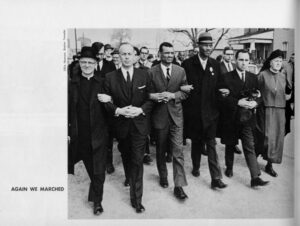 During the ministry of Walter Kellison in the 60’s and 70’s, The Peoples Church and its membership were at the forefront of civil rights and anti-war activities in the community. Donations by interested individuals financed the Reverend Kellison’s trip south to participate in the historic Selma march. Another focal point of advocacy was the use of the building by members of the American Indian Movement during a 1975 Federal Court trial in Cedar Rapids.
During the ministry of Walter Kellison in the 60’s and 70’s, The Peoples Church and its membership were at the forefront of civil rights and anti-war activities in the community. Donations by interested individuals financed the Reverend Kellison’s trip south to participate in the historic Selma march. Another focal point of advocacy was the use of the building by members of the American Indian Movement during a 1975 Federal Court trial in Cedar Rapids.
The pulpit skills of Judith Urquhart (now Judith Walker-Riggs) and the social action involvement of Jeremy Brigham continued the Peoples Church tradition of leadership in community affairs. During this time the church served as meeting place for Metropolitan Community Church, Symphony Suzuki School, and as a commodity distribution site. The Inter-Religious Council of Linn County was formed at this time, with six of twenty-four founding members coming from Peoples.
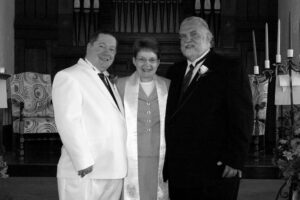 In 1994, Dr. Linda Hansen was called as minister. Noted for her finely crafted sermons and exceptional people skills, the Reverend Hansen helped the congregation to heal and enter a new period of vigor and purpose. Linda also helped strengthen ties to other religious organizations in the community. A new generation of leadership within the church grew as new members joined and a number of people who had grown up in the congregation returned with their children. Members participated in the two-year “Decisions for Growth” program sponsored by the UUA, which led to specific actions to promote the “caring congregation” and to address internal organizational needs. Covenant groups formed to bring an additional level of personal connection among members. The church became a Welcoming Congregation in 1996 and church members and youth supported a change to add sexual orientation to the city’s Civil Rights Ordinance.
In 1994, Dr. Linda Hansen was called as minister. Noted for her finely crafted sermons and exceptional people skills, the Reverend Hansen helped the congregation to heal and enter a new period of vigor and purpose. Linda also helped strengthen ties to other religious organizations in the community. A new generation of leadership within the church grew as new members joined and a number of people who had grown up in the congregation returned with their children. Members participated in the two-year “Decisions for Growth” program sponsored by the UUA, which led to specific actions to promote the “caring congregation” and to address internal organizational needs. Covenant groups formed to bring an additional level of personal connection among members. The church became a Welcoming Congregation in 1996 and church members and youth supported a change to add sexual orientation to the city’s Civil Rights Ordinance.
Expansion of the position of Director of Religious Education occurred when long-time Director of Religious Education, Rosie Rimrodt, completed a degree at Meadville-Lombard and departed to serve another church. With a generous initial gift from a church family, the congregation voted in 2000 to make the position of Director of Religious Education full time. Martie Olson was hired, and began work in the 2001-2002 church year. During this time, a summer camp program was started and work toward development of a lifespan learning approach.
The Reverend Hansen left Peoples Church in the summer of 2003 to become minister at the UU Congregation of Danbury, Connecticut. Reverend Frederick T. Koyle became minister in 2004. His ministry saw many new members, an increase in covenant groups, and the establishment of a Worship Associates program. Lisa Randolph also joined the staff as the new Director of Religious Education in 2004. The position returned to part-time with a renewed emphasis on developing age appropriate activities for a growing number of children. An expanded Coming of Age program for middle school students culminated in a successful Boston Heritage Trip.
The ministry of Rick Koyle ended in June 2006 and the Reverend Marlene Walker served as interim minister from 2006 to 2008. During this time the congregation assessed its core mission, values, and dreams for the future, and also reexamined its governance over matters of finance, personnel, decision-making, communication, and location. The space limitations and physical condition of the building on 3rd Avenue also continued to be a concern.
The Reverend Tom Capo became Peoples’s minister in 2008. He arrived at a time when Cedar Rapids had recently experienced an historic flood of its core downtown area, with the church building just beyond the edge of the area the water covered. For a period before things returned to normal, power and access to the building were not possible. Some of the first work Rev. Capo took on was ministering to people both within and beyond our congregation who had been impacted by the flood. During this transition and in the midst of national economic turmoil, flood induced challenges, and member’s uncertainty about the future, it was difficult for the congregation to continue to assume the same level of financial commitments. It became necessary to cut back on staff salaries and the position of Director of Religious Education was reduced to half time once more.
After the flood, the city’s damaged steam system was no longer available to heat the church, causing utility costs to skyrocket. Also many businesses were displaced by the flood, making the church’s downtown property attractive to developers. This offered an opportunity to sell the increasingly deteriorating and inadequate 3rd Avenue building and relocate. After much discussion and mourning, the congregation accepted an offer for the property that had housed the congregation for close to 135 years. The proceeds from that sale were used to purchase and move to the current building on Gordon Avenue in the summer of 2011. This move was facilitated with the wide-spread help of the congregation and the work of a tireless staff.
The Reverend Capo worked to minister to a congregation adjusting to this change, those mourning the loss of a beloved building and location, and those excited about new opportunities. In addition to morning worship, Rev. Capo offered a menu of religious, education, or social activities to appeal to the members. He was active on The Inter-Religious Council of Linn County, and served as a moderator on Ethical Perspectives in the News on KCRG. Throughout all of these efforts, he was an active member of the greater Cedar Rapids community, building bridges to diverse factions and providing a visible Unitarian Universalist presence.
The congregation was saddened when Reverend Capo departed from Peoples in June 2014 to serve the Dupage Unitarian Universalist Church in Naperville, Illinois. The Reverend Jeff Briere became interim minister in August of that year, and the congregation voted in April of 2015 to explore a new ministerial model offered by the Unitarian Universalist Association. Developmental Ministry matches ministers with specialized skills to congregations in order to facilitate growth and transformation.
Reverend Rebecca Hinds began her ministry at Peoples Church in August 2016. Under her leadership and with the help of dedicated church leaders, the congregation began a conversation to determine the important values of our church. Based on many opportunities for congregational input, we adopted our new Mission on December 3rd, 2017: Leading compassionate lives through spiritual growth and just action.
The Board also began a study of policy governance which culminated in a clarification of the roles of the Minister, staff and Board. This governance model placed the Board in charge of determining goals for the church with the Minister responsible for implementing these goals and supervising staff. Under this structure and with the competency of Reverend Hinds, the staff, and Board, Peoples Church:
- Executed a comprehensive renovation of the Sanctuary to reflect our Unitarian Universalist aesthetics, which included installing two large stained windows from the 3rd Avenue building, making our building feel like real home for our congregation.
- Celebrated our Sesquicentennial with a gala weekend September 14-15-2019, inviting former ministers, friends and members.
- Continued improvement in the church’s financial structure and solvency.
- Took on a more active role in the wider community through the Social Justice Council’s outreach and congregational study of white privilege and racism in our community and country.
- Moved toward greater energy efficiency and independence by replacing the heating system and planning for a solar panel system.
In the midst of this positive growth and progress the church faced two historic challenges.
The Covid-19 pandemic spread quickly across our country and into our community. In early March 2020 Reverend Hinds and staff quickly pivoted and taught the congregation to use Zoom, making it possible to safely hold weekly services, meetings, and social events. To maintain the comfort of personal connection, virtual breakout rooms replaced the coffee hour. Phone trees were set up to check up on members and offer assistance. The church food pantry was robustly replenished for those who needed it.
As we adjusted to life under lockdown, we faced another challenge on August 10, 2020 when derecho winds up to 140 mph in our area tore down trees, power, telephone, and cable lines. Blocked streets trapped people in their homes with very little means of communication as the pandemic continued. Reverend Hinds and the Board dispatched teams to physically check on members of the congregation and offer help or comfort. They also set up the cleanup and repairs needed to the church building and grounds.
Church services resumed when power and communication lines were restored. As the pandemic became less intense, our church gradually began in-person worship. But as a congregation spread over a rather large geographical area, the convenience and ecological benefit from having Zoom services and meetings as well as in-person meetings could not be ignored, so we made a significant investment in new technology that would facilitate combined in-person and remote services. We also established a new paid part time tech assistant position.
Our church had grown much and laid to rest some long-standing problems, but sadly we knew our time with our much-loved Developmental Minster was coming to a close. In June 2021, the Reverend Hinds departed for ministry in Charleston, South Carolina and the Reverend David Wise — formerly our Faith Formation Director — became our interim pastor.
Because of our work during our Developmental Ministry, our congregation feels well equipped to move forward with Pastor Wise while searching for a new settled minister. With good structures for governance, financial management, and staffing, along with our clear Mission and Ends Statements, we are stable and ready for action. We have cleaned, repaired, repurposed, redecorated, and made our home more energy efficient, usable and attractive. And we have continued to go on with our social justice work.
Our work is not done, but through the Reverend Hinds’ leadership, we have the tools and courage to move forward and become the church we would like to be.
Chronology Highlights
- 1855 First attempt to gather a Universalist Congregation.
- 1869 First Universalist Society of Cedar Rapids established.
- 1875 3rd Avenue building dedicated.
- 1914 Van Vechten Guild founded.
- 1928 Peoples Church affiliates with American Unitarian Association.
- 1956 Fund drive to build addition.
- 1961 Unitarian Universalist merger at national level.
- 1969 Centennial of Peoples Church.
- 1975 American Indian Movement uses Peoples Church during Federal Court Trial.
- 1976 First woman minister installed.
- 1985 Peoples Church declared a Nuclear Free Zone.
- 1992 Restoration of roof, exterior walls and 1889 Steinway piano.
- 1992 Peoples Church becomes charter member of Inter-Religious Council of Linn County.
- 1994 Peoples 125th Anniversary.
- 1995-96 Restoration of interior walls.
- 1996 Peoples Church became a Welcoming Congregation.
- 2011 Peoples Church moved to its new location on Gordon Avenue.
-
2016 Developmental Minister called.
-
2019 Celebrated 150th Anniversary.
-
2020 Pivoted to online only worship services and meeting because of Covid-19 pandemic.
-
2020 survived the derecho amid widespread damage to our community.
-
2021 Installed fuel-efficient furnace and photovoltaic (solar) panels.
